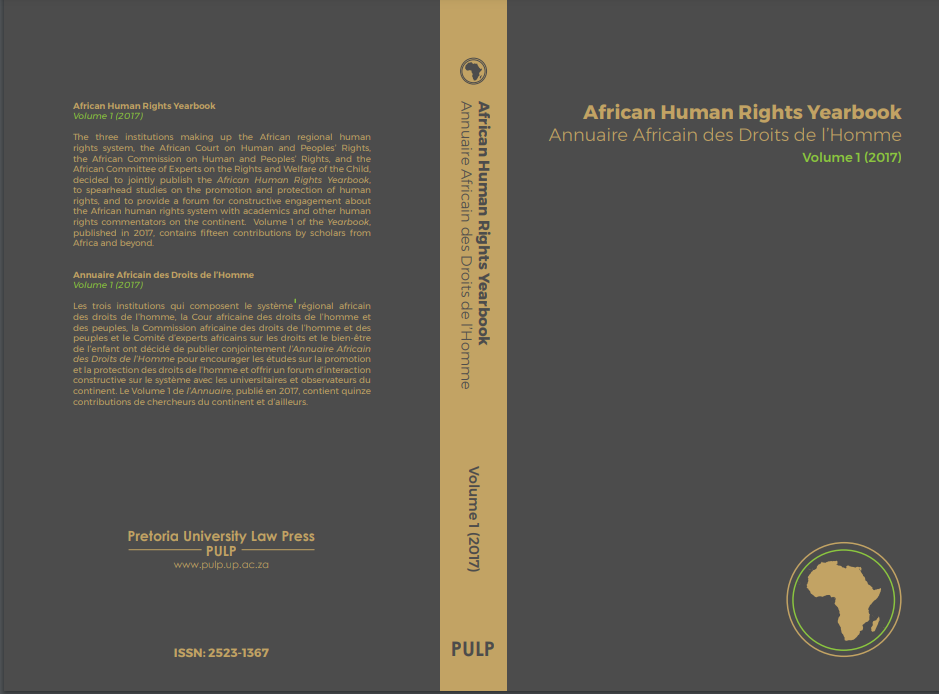The relevance of substantive equality in the African regional human rights system’s jurisprudence to women’s land and property rights
DOI:
https://doi.org/10.29053/2523-1367/2017/v1n1a3Keywords:
property, equality, women, rights, land, Africa, interdependenceAbstract
ABSTRACT: Over the last 15 years there have been concerted efforts to put in place frameworks on the protection of women’s land and property rights both at the international and domestic levels. Despite the proliferation of these instruments and their supposed recognition across the African continent, the actual realisation and enjoyment of these rights by women is still scant. Systemic and systematic violations of women’s rights persist. Such a state of affairs where the recognition of WLPR exists alongside violations of the protected rights points to the widely accepted fact that the realisation of WLPR cannot solely be achieved through the enactment of laws and policies that address the direct discrimination. From a legal perspective, there is need for jurisprudence that comprehensively outlines the content of rights and state obligations. In order to be fully conscious of the various limitations and challenges that exist towards the realisation of WLPR, bodies of the African human rights system have to use a substantive lens to interpret and apply equality and non-discrimination in such cases. That way the rights of women to land and property on the African continent may be guaranteed and protected.
TITRE ET RÉSUMÉ EN FRANÇAIS: La pertinence de l’égalité réelle dans la jurisprudence du système régional africain des droits de l’homme pour les droits fonciers et de propriété des femmes RÉSUMÉ: Au cours des 15 dernières années, des efforts concertés ont été déployés pour mettre en place des cadres nationaux et internationaux relatifs à la protection des droits fonciers et de propriété des femmes. Malgré la prolifération de ces instruments et leur supposée reconnaissance à travers le continent africain, la réalisation et la jouissance réelles de ces droits par les femmes sont encore rares. Les violations systémiques et systématiques des droits des femmes persistent. Un tel état de choses, où la reconnaissance des droits fonciers et de propriété des femmes existe en même temps que les violations des droits protégés, indique que la réalisation de ces droits ne peut être atteinte par la seule promulgation de lois et politiques traitant de la discrimination directe. D’un point de vue juridique, il y a un besoin de jurisprudence qui définit globalement le contenu des droits et des obligations de l’Etat. Afin d’être pleinement conscients des différents limites et défis existant quant à la réalisation des droits fonciers et de propriété des femmes, les organes du système africain des droits de l’homme doivent adopter une approche basée sur la réalité pour interpréter et appliquer l’égalité et la non-discrimination dans de tels cas. Ainsi, les droits fonciers et de propriété des femmes sur le continent africain pourraient être garantis et protégés.


